Accessible Cruise Tips: The Ultimate Guide
While we aren't supposed to play favourites, cruising is definitely up there as one of our preferred ways to travel. Seeing the world from the comfort of a luxury vessel while only having to unpack your bags once? Sign us up.
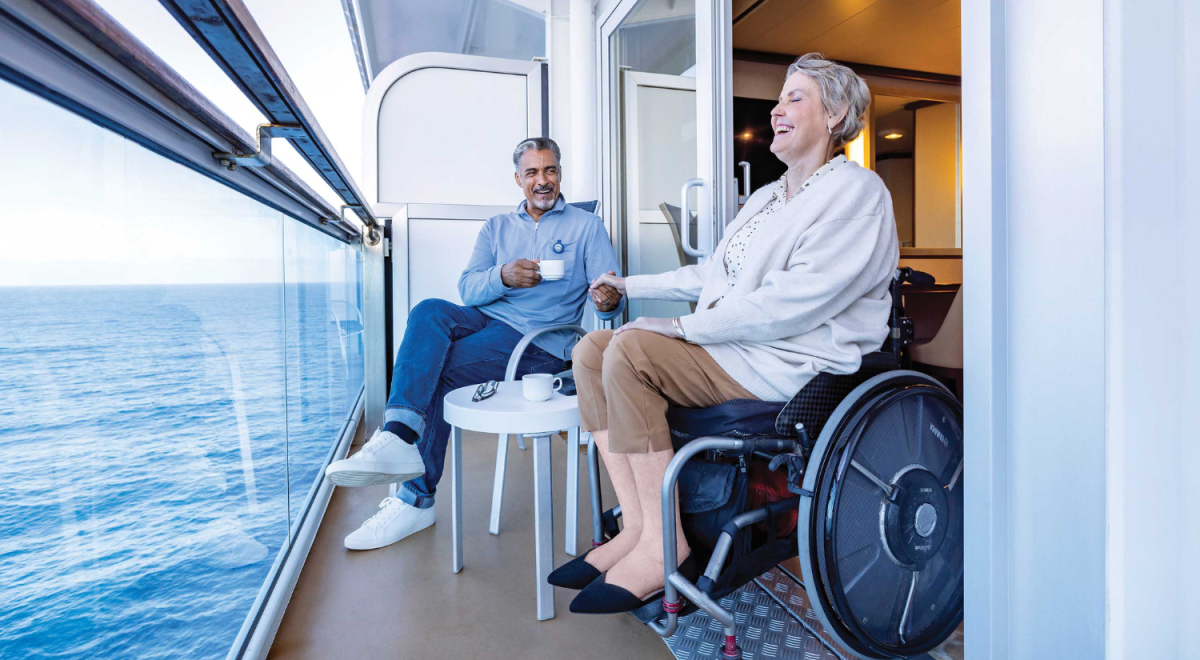
2min read
Published 1 October 2024
While we aren't supposed to play favourites, cruising is definitely up there as one of our preferred ways to travel. Seeing the world from the comfort of a luxury vessel while only having to unpack your bags once? Sign us up.
This ease of travel also makes cruising an ideal option for those with disabilities and accessibility needs. In fact, modern cruise lines have gone above and beyond to make cruising one of the best for travellers living with a disability or impairment.
Why Are Cruises Great For Wheelchair Users And Those Living With A Disability?
As a rule of thumb, cruising generally has far less challenges than other forms of travel, especially on mega ships and larger cruise liners. With almost all the services of an entire city contained on a ship connected via elevators, you don't have to stress about finding an accessible taxi, wondering if your wheelchair will fit in a restaurant or hotel room, or worrying about wayward stairs.
Those with sensory impairments, special needs and neurological disabilities are also catered to with a range of onboard elements to promote smooth sailing for your next holiday.
Long story short, with the accessibility needs sorted, you can spend more time sipping cocktails, researching shore excursions and making the most of life at sea.
Types of Accessible Cruises
When it comes to holidays on the water there are two main options - ocean and river cruises. While river cruising is not impossible for those with mobility issues, the smaller ships and lack of elevators generally do not cater as well to wheelchairs, mobility scooters and mobility devices. If you've got accessibility needs and have your heart set on a river cruise, chat with one of the Travel Experts at Flight Centre who can help find the right option for you.
Ocean cruises, however, are a whole different ball park. Not only do all major ocean cruise liners boast wheelchair accessible cabins in all classes, but they've implemented a range of accessibility measures to ensure all passengers have an incredible time at sea.
Wondering how you board a cruise ship in a wheelchair or with a mobility scooter? The large docks and gangways allow travellers to easily pass on and off the ship. Experienced staff will also take any luggage to your room, so you don't need to stress about managing heaps of bags or medical equipment as your board the ship.
Travel tip: Mega cruise liners are huge, which may prove difficult for passengers with mobility issues or slow walkers. Consider renting a scooter or wheelchair for the cruise to make it easier to get around and enjoy all the facilities on offer.
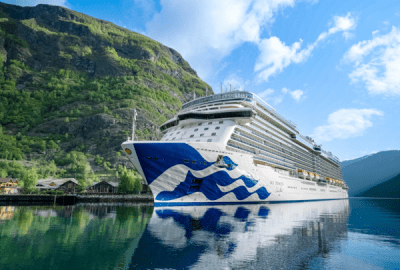
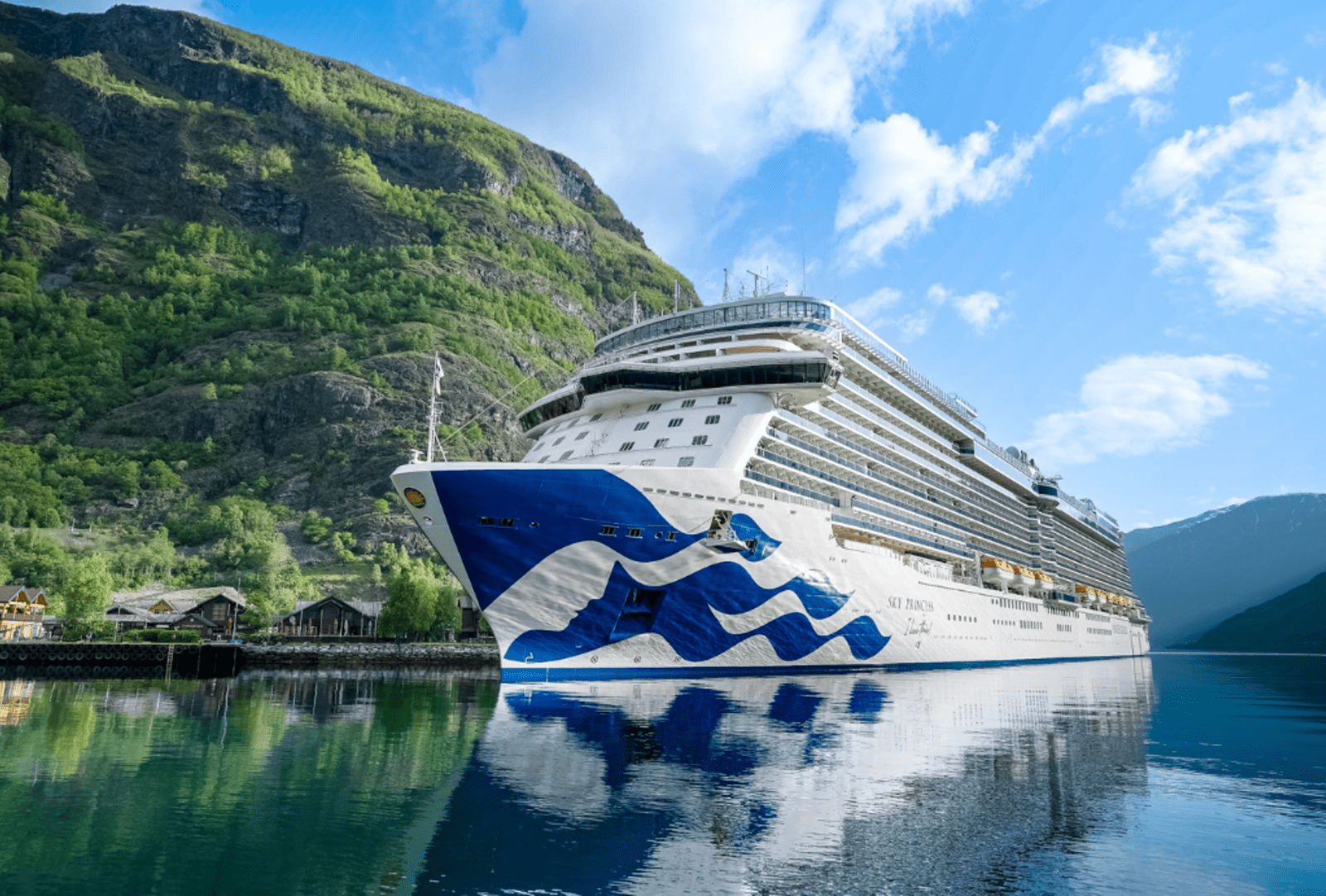

What Accessibility Options Are Available On Cruise Ships?
Cruises cater to a wide variety of disabilities and accessibility needs. If you're unsure as to whether a company or ship will accommodate your requirements, have a chat with our Travel Experts who can help answer any questions.
Fully accessible cabins
Most ocean cruise ships offer accessible rooms and cabins which feature the likes of:
- Wider doorways with no sills or lips
- Roll-in showers
- Fold-down shower benches
- Accessible balconies
- Lowered sinks, vanities and closet rods
- Handheld shower heads
- Larger turning radius in rooms
- Grab rails
- Shower chairs
- Automatic doors
- Blocks to raise beds
We understand that the needs of each wheelchair user will vary, so chat with your booking agent or the cruise line directly to confirm what is and isn't included in the room.
Just remember that they are still cruise ship rooms, so they will be smaller than average. If in doubt, ask for the dimensions to ensure there is enough room for you and your medical equipment.
Beyond the rooms, some cruise ships also feature accessibility devices in public areas of the ship. For example, some Royal Caribbean, MSC cruises, Carnival and Virgin Voyages ships boast lifts for the pools and whirlpools, and accessible public restrooms.
Mobility equipment hire
Reduce the amount of luggage you bring on board by renting mobility equipment. If you are unable to rent from the cruise line directly, there are companies that specialise in mobility equipment hire delivered straight to your stateroom. Rent everything from wheelchairs to scooters, hospital beds, oxygen concentrators, commodes and more.
Service dog access
Service dogs are usually permitted on all cruise ships, but may not be permitted to disembark at all ports. Most cruises will have a maximum number of service dogs allowed on board at all times, so check with your travel consultant that your service dog can be accommodated and book in advance to secure their spot.
Once booked, be prepared to provide any relevant vaccination records and other documentation before your precious pooch is permitted on board.
Sensory impairment devices
Modern cruise liners continue to implement a wide range of strategies to assist those with sensory impairments including:
- Hearing loops
- Braille menus and signage
- Telephone amplifiers
- Visual smoke detectors
- Door knock sensors
- Text telephones
- Downloadable daily itineraries and activity schedules
- Sign language services
If you require sign language assist, please let your booking agent know as cruise lines often require advance notice.
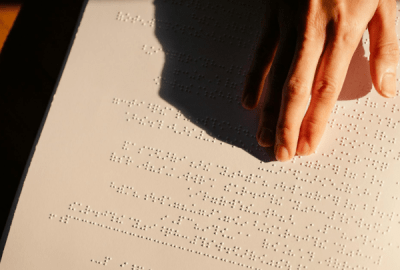
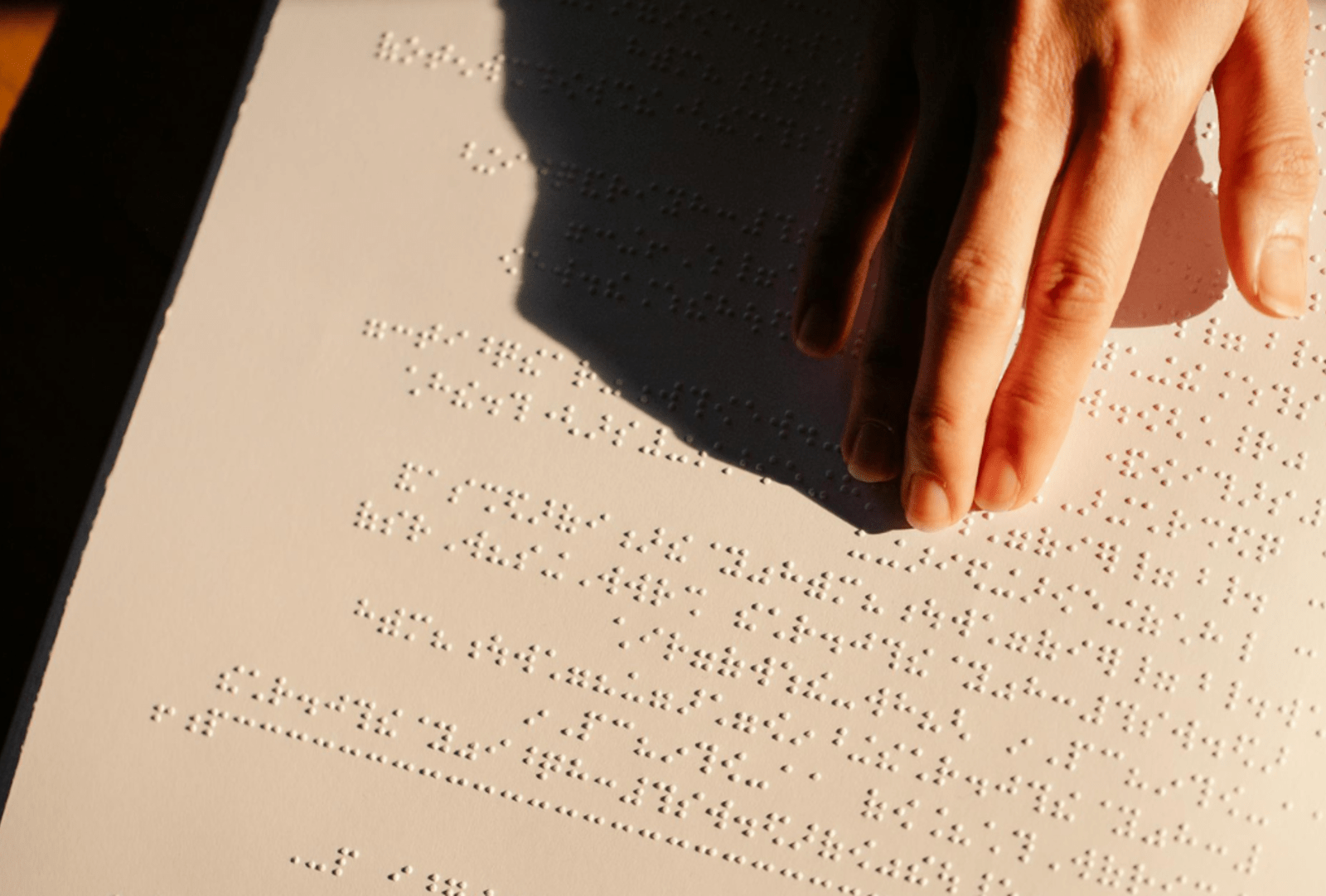

Autism on the Seas
A large range of popular cruise lines have partnered with Autism on the Seas to offer bespoke experiences for guests with ASD. Accommodations can include everything from staff trained in autism awareness, to toy lending programs, fidget toys and more.
Their services continue to expand, offering cruise services to accommodate adults and children living with special needs including, but not limited to Autism, Asperger Syndrome, Down Syndrome, Tourette Syndrome, Cerebral Palsy and all Cognitive, Intellectual and Developmental Disabilities.
Let our team know if you're interested in Autism on the Seas services and we will happily assist in finding a suitable cruise.
Children with disabilities
Certain cruise lines have gone above and beyond to cater to families and children with disabilities. Chat with your booking agent about finding a cruise that offers any of the following:
- Accessible family accommodation
- Kids clubs that group by ability (rather than age)
- Toilet-trained policy exceptions
- Specialised babysitting services and kids clubs with staff trained in autism awareness and special needs.
Booking Accessible Shore Excursions
It's easy to spend all of your time enjoying the amenities onboard, however we highly recommend spreading your wings and exploring new destinations with a shore excursion.
While the ships cater to passengers with a broad array of accessibility needs, the same can't be said for shore tours. Don't let this deter you from making the most of your time in ports - you might just need to do a little more prep to ensure you can explore a new destination with ease.
If you're keen to join a tour or explore a new destination on your cruise, confirm whether the ports are docked or tendered. Tender ports are generally not accessible for those with mobility issues.
We also recommend looking online in advance at the available accessible shore excursions and their individual requirements. If there aren't any that are suitable, one of our cruising experts can assist in booking private shore excursions and transfers in accessible vehicles that meet your needs.
Helpful Tips For Accessible Cruises
Feel like an expert by following these tips when choosing and booking your next itinerary.
Do plenty of research
Regardless of your accessibility and special needs, ask yourself questions like:
- Where do I want to go?
- What kind of cruising experience am I after?
- How long do I want to be away?
- Is the cruise the main holiday or part of a bigger trip?
With these details sorted, look online or chat with one of Flight Centre's cruising experts to determine which companies, ships and itineraries best cater to your accessibility and transportation needs.
Don't be afraid to ask the nitty gritty questions. Depending on your disability and needs, make sure you consider the following when picking a cruise and room:
- Cabin accessibility dimensions like doorway widths, toilet height, amount of storage space for medical equipment, sliding doors, roll-in showers etc.
- What is the cruise line's policy around batteries, chargers and equipment weight limits? You'll want to bring the essentials plus backup supplies.
- General accessibility measures. Think - how wide is the gangway? How high are the tables in the casino or restaurants?
- Are ports docked or tendered? (ie will the ship be tethered to docks with gangway access, or anchored off-shore with only small-boat access to the mainland?)
- Google the deck plan of potential ships on the cruise line's websites. Accessible cabins will be shown with a wheelchair symbol.
Choose the right cruise line for your needs
If in doubt, a good rule of thumb is that bigger ships tend to be more accessible. While each ship is different, some cater better to different levels of ability than others. For example:
- Holland America Line and Celebrity Cruises cater to older travellers, so access was a high priority in ship design.
- Luxury ships will have a higher staff to passenger ratio, meaning you've got more support and potentially better service.
- Smaller ships and river cruises are typically not as accessible or wheelchair friendly, though they can cater to those with sensory impairments.
Better yet, learn from previous travellers by Googling "(cruise ship name) wheelchair access review" for feedback from other wheelchair users.
Book with plenty of notice
While the ships are huge, the number of accessible cabins are limited and often booked quickly. We recommend doing your research and booking as soon as possible.
If there is a particular cruise you've got your heart set on, keep your eyes peeled for "on-sale" dates so you can book as soon as they are open.
Let the cruise know about your needs
The cruise should go above and beyond to cater to your needs. However, they aren't mind readers and the staff may have limited experience with passengers with your disability. With this in mind, don't be afraid to be specific and outline exactly what you need from them. Likewise, feedback can go a long way to improving your experience and the experience of future passengers.
Not only does this provide the staff with valuable information in case of an emergency, but it prevents them asking irrelevant questions, allows them to dedicate appropriate resources and avoids any confusion. The same goes for booking spa services and specialty meals.
Packing Tips
Most cruise lines will provide a general packing list for the essentials like clothes and toiletries. Beyond that, we recommend spending a little extra time packing to ensure you're not lacking in medical consumables or equipment.
If you've got a wheelchair, then make sure you pack a spare charger and some spare parts in case something breaks on board. Some ships may have manual chairs to borrow, but this isn't always the case.
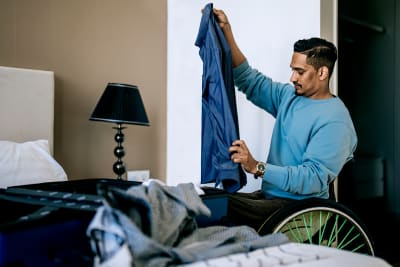


Get to shows early
You can enjoy world-class shows every night if you wish! Just make sure you get there early as seats aren't always reserved for production shows.
We also recommend letting staff know if you want to transfer into a standard seat or stay in your wheelchair.
Stay connected
Use the ship's WiFi to stay connected with your travel companions and ship staff throughout the cruise. The ship will usually have an app, or you can use something like WhatsApp. We also recommend storing the details of fellow cruisers or even a staff member from guest relations for easy access in case of an emergency.
Ready To Book Your Next Cruise?
Chat with Flight Centre's team of cruising experts online, over the phone or in store today. We will happily go above and beyond to answer any questions and ensure your accessibility needs are catered to on your next cruise.

